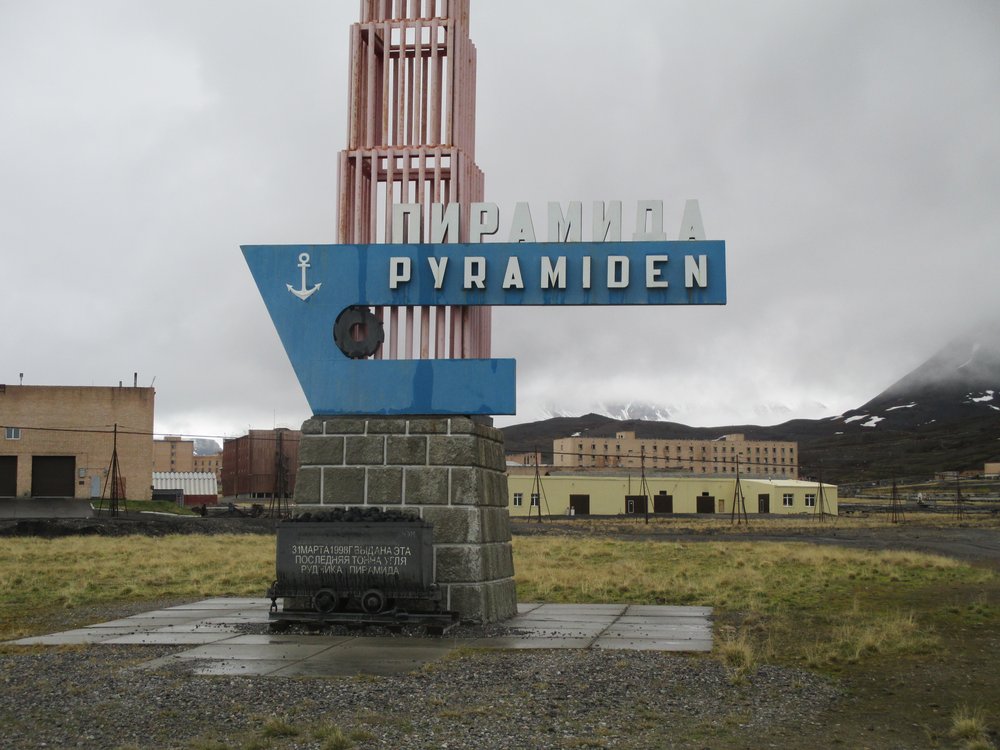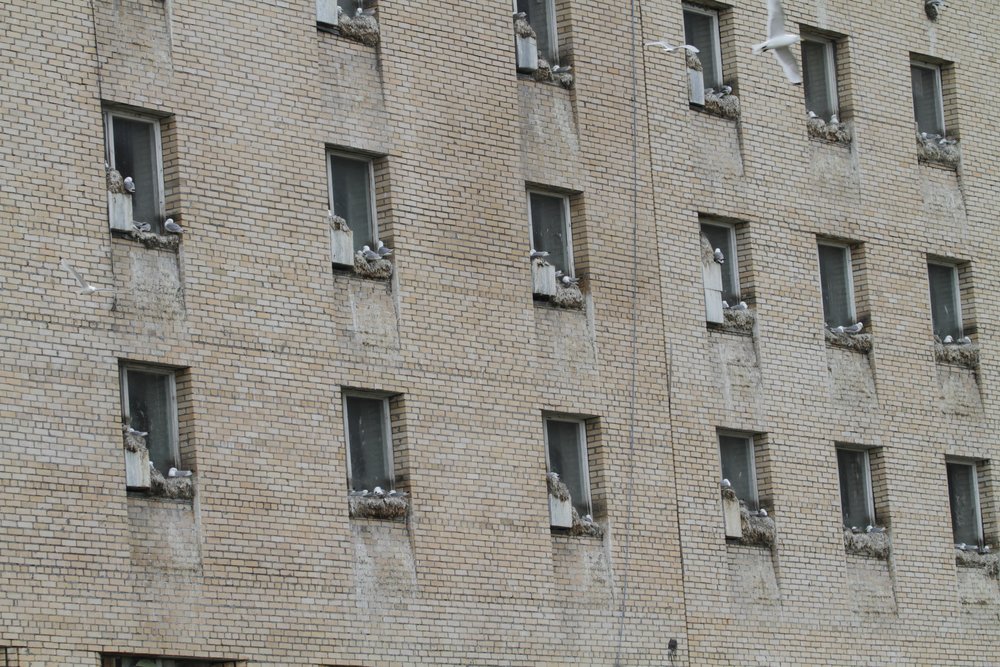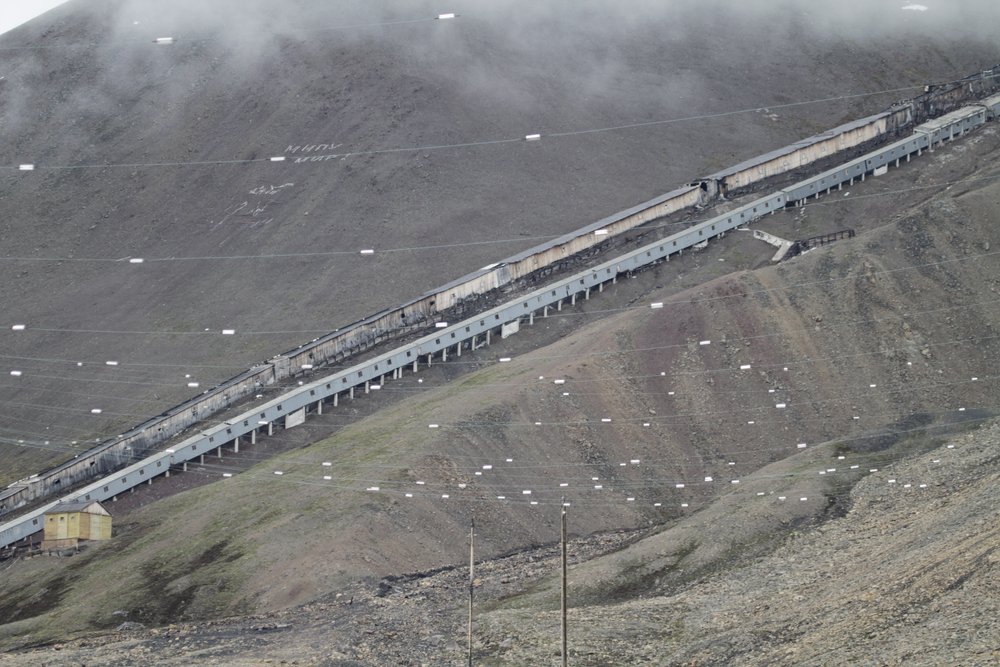
Pyramiden is a Russian ghost town of the north. It was founded by the Swedes to mine coal from the pyramidal shaped mountain in 1910. In 1927 they sold it to the Soviet Union. The town, on the Billefjorden, was officially closed in 1998 but about 20 people continue to live there, running a small tourist business.
When Sascha was done talking, someone offered him a drink.
“I don’t drink,” he said in a strong Russian accent. “I smoke weeeeeed.” We all laughed. Sascha continued with his deadpan look, eyes wide.

The next day Sascha greeted us wearing a Russian cap and a long, formal coat. His rifle slung over his shoulder, he looked like a guard outside of the royal palace. He began the tour of the of the once wealthy community by telling us that “It was a privilege to live here.” He showed us the northernmost empty swimming pool, and the cultural center complete with a stage and the northernmost out of tune grand piano. Outside stood the northernmost statue to the grandfather, Lenin. The wide, open central walkway of the town was known as the Champs Elysee, and the apartment reserved for women was known as Paris. Now only two women live in town, and Sascha lives “like a monk.” Above the town hovered the wooden frame that houses the rails of the coal mining cars. It snaked high up the mountain. On the face of the pyramidal mountain someone had placed wooden planks spelling out Peace on Earth.

A short walk brought us to some healthy looking reindeer. “This is special grass,” Sascha explained. When Pyramiden was in its heyday rich soil was brought in by ship from the Ukraine. “Big ship, Ukraine to Pyramiden,” he repeated to emphasize the absurdity of this. It isn’t special grass, it’s really just grass, but it doesn’t belong in this landscape. It did thrive, however, and for a time there was a farm, complete with cows and chickens. The grass is still growing green and the reindeer love it.

Until Berentsberg and Pyramiden I was living with one image of the north, one filled with icebergs and snow covered mountains and fantastic wildlife. From time to time we’d pass a wooden trappers hut, which told the story of subsistence hunting on this land, a life spare and hard that is easily romanticized (for the best of such narratives, read Christiane Ritter's A Woman in the Polar Night). I was imagining a peaceful land as well, not one touched by war. Pyramiden re-sculpted my view of the north into something less pristine, less peaceful. Pyramiden might be a ghost town, but the story it tells brought to life the complexity of this Arctic landscape.